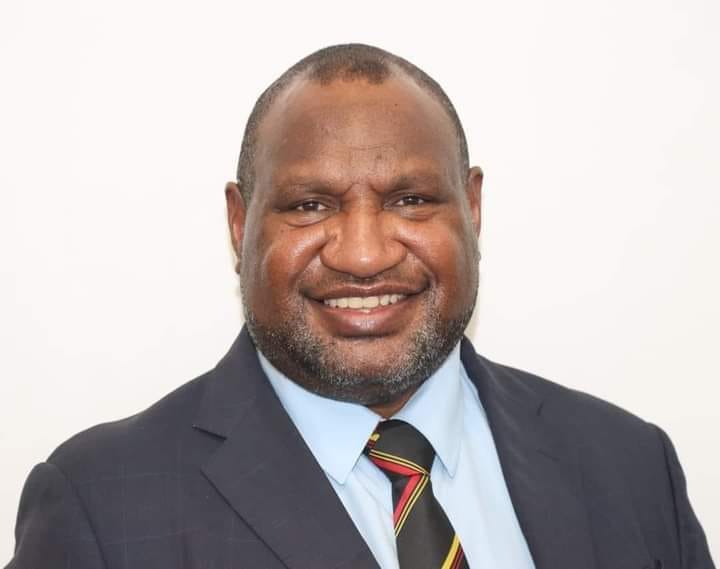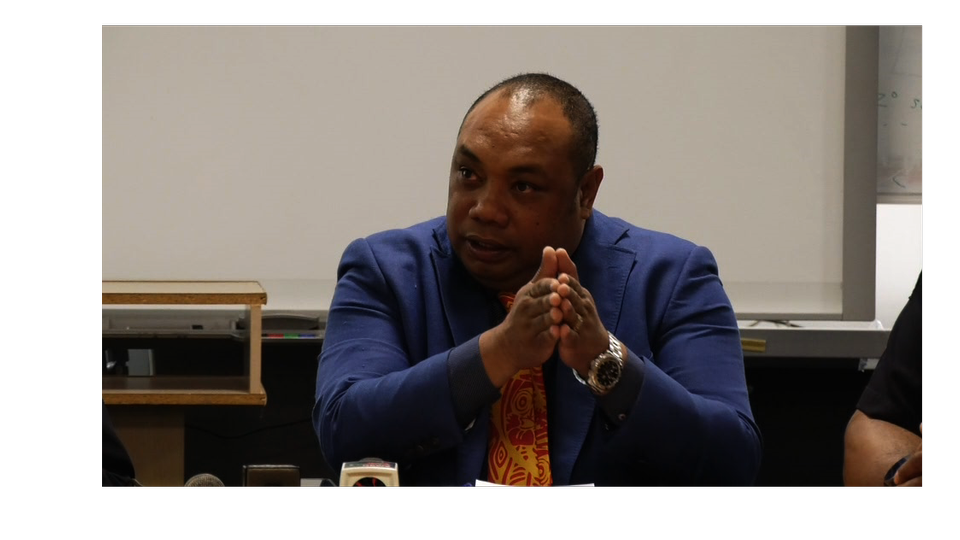 Health In PNG Remains Top Priority: PM Health In PNG Remains Top Priority: PM THE challenges of the health sector in Papua New Guinea are somewhat insurmountable yet there has been fair demonstration by the Government of its commitment to drive improvements. From the outset, healthcare was not readily available to people and accessible by everyone, especially those living in rural remote areas and it is a concern as PNG looks forward to celebrating its 50 years of independence in 2025. In the start of the year, Jessy Simon, who was the nursing officer-in-charge of Bomai Sub Health centre in the remote Karamui-Nomane, Chimbu, would meet mothers along the way to deliver babies. In June, faith-based, not-for-profit organisation Samaritan Aviation flew a seven-year old boy Deni, bitten by snake, from Ambunti along the Sepik River to Boram Hospital in Wewak, where anti-venom was administered to him. Deni would not have survived otherwise because it takes about two days via canoe to get to Wewak. In August, Western’s Balimo Hospital health extension officer Gabriel Milep, shared about a 28-year-old woman from the remote Awaba area losing her baby while travelling on a canoe then a dingy to get to the hospital. In September, a group of six adults and two babies living at the Waniati maternal waiting hut after getting treatment at the Goroka Hospital in June, left for Lae, where they would then get on a PMV to Menyamya, Morobe, and then walk to Marawaka then Andakobi in Eastern Highlands. The Waniati maternal waiting hut was a non-governmental organisation that accommodates women from rural areas who seek treatment. These were some examples of how difficult it was for a person in rural PNG to access health care. Government’s commitment to efficiently fund health sector This was the second year of the implementation of the seventh national health plan (NHP) 2021-2030 which was described by Health secretary Dr Osborne Liko as, “purely home-grown”, compiled by Papua New Guineans aimed at delivering health to the grass roots through strengthening of health system and partnerships. The plan was launched last December, after the passing of the 2022 Budget of K22 billion from which health sector received the biggest slice of 11 per cent — about K2.6 billion. Prime Minister James Marape said the budget for this year placed more focus on the health sector than before and the same level of prominence would be given in the coming years. He said with funding support, the health sector administrator should ensure that the plan was implemented as intended. “I summarise the plan into this – a quality health system and facilities must be within reach in an hour by walking, by boat, by vehicle or by plane for our people wherever they are in the country,” he said. At the 56th medical symposium of the PNG Medical Society in September, Marape reaffirmed the Government’s commitment to ensure that the plan was financed and announced a K42.7 billion health intervention programme for the next 10 to 15 years. He pointed out that the Coronavirus (Covid-19) pandemic had awoken PNG to the ailing state of health facilities, hence the support to build back better. In K24.56 billion Budget 2023, the health sector was allocated K1.7 billion which prioritises the funding for increasing health workforce from 21,739 to 29,065 by 2026. Important to note along this line also was the K50 million allocation to start the work on the new standalone medical university. Projects and programmes in the health sector that were stalled or stopped over the last two years, mainly due to the Covid-19, resumed this year and the symposiums/conferences was one of them. It was during these gatherings that health workers discussed their challenges and the way forward in line with the plan that was recommended to the Government through the Health Department. Chronic health sector challenges
Despite the huge funding allocation for the health sector this year, the problems/issues remain chronic because medicine shortage, lack of manpower and failing infrastructure persisted. Health professionals in PNG work in some of the most trying resource constrained conditions. They acknowledged the challenges within their respective health facilities and developed local strategies to mitigate them. The challenges faced by a health worker in the remotest part of the country where accessibility to roads, jetties, ports or airstrips was a challenge in itself, cannot be compared to those faced by those in an urban health facility. However, there were reports of medical supply shortages from rural and urban health facilities almost every month which the Health Department acknowledged every time a concern was raised. Shortage of health workers, shortage of bed space. The National / PNG Health Watch next: PNG To Import Medicine Directly From Pharmaceutical Factories Comments are closed.
|
PNG Health NewsThis websites provides all the latest Health News , insurance, health tips, health and scholarships in Papua New Guinea Top Links |
- Home
- PNG Health News
- Health Tips
- Jobs
- Health Scholarships
- Nursing Colleges in PNG
- Health Ministry
- Private Hospitals in PNG
- Health Department
- Insurance
- Institutions
- CHW Colleges in PNG
- Health Issues
- About
- Contact
- Privacy Policy
- COVID-19 in Papua New Guinea
- Enga School of Nursing
- PNG Health Database
- Hospitals in PNG
|
Home : News : Health Insurance : Training : Health Training Institutions : Hospitals : Provincial Hospitals : Contact: Privacy Policy
|

 RSS Feed
RSS Feed
